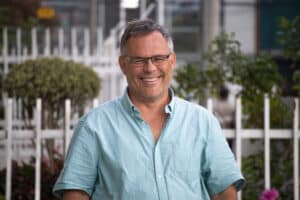Welcome to a new blog post. My first five posts may have painted a somewhat pessimistic view of the world, but I had to address some real heart issues before I could get into specifics of how we can make any real progress in changing the world. It’s a step that couldn’t be glossed over or skipped. If you have not read those posts, I encourage you to do so now.
This post builds on those harsh realities but shifts direction and offers hope. My team and I want you to feel the same excitement that we do because we truly believe that the Christian community can, in this generation, radically impact the world.
Are you one of the growing number of people that believes change is possible—in fact, probable? I hope so. In reality, the question is not IF change can and will happen, but rather… will you be a part of it or be a spectator? To Jesus, it matters which you are, so answer carefully.
I’ve outlined five reasons for this refreshing optimism below. But be warned! Because once you understand what IS possible, you become accountable for what you do about it. You can no longer claim ignorance and hide behind “the problem of hope” that I explained in my first blog in this series.
My five reasons for optimism are not meant to map out the solutions but to suggest the tantalizing possibilities that already exist, which can ignite radical change in this world. As you read through these, think about your involvement and brainstorm on how we can better engage and work together over the next 3-4 years to create solutions.
Five Reasons for Optimism
1. Amazing Young Leaders: In every community I visit, I find inspiring, resourceful, and hope-filled Christians who not only want to change their world but have ideas for how to do it. There are about 2.2 billion Christians in the world. Of this number, approximately 30 million are Christian college students taking courses online. There are also millions of young untapped Christian professionals. Some are eager to help but sadly, only 1% or less of the Christian population is active in world-changing activities. Imagine if we doubled that to 2%? This is an important resource that I’m confident can make a difference. Remember, God speaks to people, not to money or organizations.
2. Untapped Resources: If all resources were tapped, then we get what we have, and there’s nothing more to hope for. But the vast majority of resources that exist in the Christian community are not tapped or put to any good use. About $700 trillion (yes trillion) is generated in income by the global Christian community. Yet, only $42 billion is given to Christian causes annually. That’s only about 1%. Imagine if that was doubled to 2%. We have tremendous room for growth in financial resources. But tapping into financial resources is only part of the story. What about consumer goods? The environmental and recycling movements are making strides but could be so much stronger. Likewise, Christians are still flailing when it comes to repurposing excess homes, businesses, belongings, and other assets. Think about all the properties that lay empty or personal belongings just sitting unused in storage units. There is SOOO much more we can do. They say, “Where there’s a will, there’s a way.” Well, I believe the will exists. The challenge is finding an efficient way to utilize all these goods and assets. Point five below will explain why it hasn’t happened yet.
3. Unshared Knowledge: Never before have people held so much knowledge in their heads, had so much information accessible to them through a few taps on their handheld devices, or had so many models and algorithms to help them make sense of it all. Yet, knowledge-sharing is often ignored and not modeled. American author Louis L’Amour once said, “Knowledge is like money: to be of value it must circulate, and in circulating it can increase in quantity and, hopefully, in value.” Unfortunately, so many people don’t heed L’Amour’s words and take this great resource to the grave with them. I hope that the Christian community will learn to circulate and share their knowledge with others in the world. Christians are not poorer in knowledge than any other people group and are arguably more blessed with knowledge. So, where is this knowledge? Where is it being invested? What eternal purposes is it available for? These questions need to be asked and a new behavior of knowledge-sharing developed.
4. Unmet Expectations: Whose expectations? The Scriptures are full of challenges and descriptions of the amazing role we are given in this world, including a Kingdom of priests, the light of the world, a people of hope, and a channel of blessings. As Jesus spoke with His disciples, he said we would do more than he did on earth because He would ascend to heaven, and He would give us the Holy Spirit to help us with our role on earth. I take it as a vote of confidence because Jesus expected us to have the ability to do what He asked of us. One of my theological theories is that Jesus will not return until we’ve given some definition of our best effort to be the Kingdom on earth that He called us to be. And we aren’t even coming close to that yet. I believe this means that there’s much more to come. We are on the cusp of greater discoveries of effectiveness and impact. This isn’t a time to coast along. It’s time to gear up! God will give us the ability to do what He expects of us.
5. Unimagined Framework: Above you have four realities I find very encouraging. They beckon us to get our act together and figure this out. It’s like a treasure map—a real one with a real treasure to discover. We just have to solve all the puzzles and figure out how to get to the destination. My last point is that there exists an Unimagined Framework—an invisible map that connects all these pieces. Our job is to begin imagining, then designing, then building and using this framework. And this is where L555 comes in! We are putting the framework together! Our code name for this framework is Assembli. It encompasses what we believe are the elements to unlock the staggering potential that we as a Christian community have to change the world. It has the potential to connect leaders, resources, and ideas into world-changing action in every corner of the earth. The fact that we can imagine this framework means that it’s possible. Our team is dedicating its life to seeing this happen.
My next posts will explore Assembli and why it has the potential to bring all the pieces together. At the heart of Assembli is an interaction model called BlockPlay. Each post will center on one of 15 blocks. Each block represents a contribution that any Christian can make to a collaborative world-changing movement, and do so in a fun, social, and engaging way. I look forward to having you change the world with us.
To learn more on this topic, listen to the Mission Qritical podcast hosted by our parent organization Lead555.



